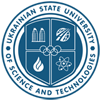VACCINATION INFODEMIC AMONG CITIZENS OF MAGALLANES, CAVITE, PHILIPPINES
DOI:
https://doi.org/10.15802/unilib/2021_248965Keywords:
misinformation, disinformation, infodemic, vaccination hesitancy, COVID-19, Cavite, PhilippinesAbstract
Objective. This survey research intends to understand how people from a fourth-class municipality of Cavite made their decision to be vaccinated in spite of false information circulating within family, friends, and neighbors. Methods. The study employed survey research and gathered data using voluntary sampling from a pool of citizens with an appointment schedule in the vaccination site located in Magallanes, Cavite. Results. The pandemic saw a rise in the spread of information disorders. The proliferation of fake news and misinformation affect our lives as they disrupt relationships with family members and friends. Trust is being questioned as people believe in contrasting medical opinions. The overload of information sharing is a challenge for individuals to evaluate news sources coming from multiple platforms. As the status of inoculation in the Philippines is ongoing, citizens who want protection took time to get vaccinated. The impact of traditional and social media continues to be powerful influencers in information dissemination. As we deal with overabundance of information, librarians have an emerging role to play. Conclusions. Librarians are seen as partners of a local government unit in promoting citizens' well-being, providing credible sources of health information vital for an individual to help them arrive at an informed decision, and showcase advantages of vaccines as evidenced by scientific publications.
References
Affelt, A. (2019). All that’s not fit to print: Fake news and the call to action for librarians and information professionals. Emerald Publishing. (in English)
Cambridge Dictionary. (2021a). Fake News. Retriеved from https://dictionary.cambridge.org/dictionary/english/fake-news (in English)
Cambridge Dictionary. (2021b). Post-truth. Retriеved from https://dictionary.cambridge.org/dictionary/english/post-truth (in English)
Chua, Y. T., Curato, N., & Ong, J. C. (2021). Information dystopia and Philippine democracy. Retriеved from https://cutt.ly/RR7kFUJ (in English)
CNN Philippines. (2021, October 21). Duterte accounts for COVID-19 vaccine shortage in PH. Retriеved from https://cutt.ly/wR7k0oq (in English)
Cooke, N. A. (2018). Fake news and alternative facts: Information literacy in a post-truth era. American Library Association. (in English)
Coward, C., McClay, C., Garrido, M. (2018). Public libraries as platforms for civic engagement. Seattle: Technology & Social Change Group, University of Washington Information School. Retriеved from https://digital.lib.washington.edu/researchworks/bitstream/handle/1773/41877/CivLib.pdf (in English)
Demuyakor, J., Nyatuame, I. N., & Obiri, S. (2021). Unmasking COVID-19 vaccine “Infodemic” in the social media. Online Journal of Communication and Media Technologies, 11(4), e202119. doi: https://doi.org/10.30935/ojcmt/11200 (in English)
Eberhart, G. M. (2019). Media literacy in an age of fake news: Prepare your users for the pitfalls of misinformation. American Libraries, 50(11/12), 38-41. (in English)
Funke, D. & Flamini, D. (2021). The Philippines. Retriеved from https://www.poynter.org/ifcn/anti-misinformation-actions/#philippines (in English)
Germani, F., & Biller-Andorno, N. (2021). The anti-vaccination infodemic on social media: A behavioral analysis. PLoS ONE, 16(3), e0247642. doi: https://doi.org/10.1371/journal.pone.0247642 (in English)
Greenspan, R. L., & Loftus, E. F. (2021). Pandemics and infodemics: Research on the effects of misinformation on memory. Human Behavior and Emerging Technologies, 3, 8-12. doi: https://doi.org/10.1002/hbe2.228 (in English)
Jesse Robredo Institute. (2021). Empowerment through people and data: Best practices of LGU Magallanes in COVID-19 response. Retriеved from https://cutt.ly/6R7lwvb (in English)
Kranich, N. (2012). Libraries and civic engagement. Library and Book Trade Almanac, 2012, 75-96. doi: https://doi.org/10.7282/T3VX0DWS (in English)
McGill COVID-19 Vaccine Tracker Team. (2021). 10 vaccines approved for use in Philippines. Retriеved from https://covid19.trackvaccines.org/country/philippines/ (in English)
Merriam-Webster. (2021). Disinformation. Retriеved from https://www.merriam-webster.com/dictionary/disinformation (in English)
National Library of the Philippines. (2018). Status of Philippine public libraries and librarianship: Final research report. Retriеved from https://cutt.ly/oR7lac3 (in English)
O’Neil, M. & Jensen, M. J. (2020). Australian perspectives on misinformation. News & Media Research Centre, University of Canberra. Retriеved from https://cutt.ly/sR7lcXB (in English)
Province of Cavite. (2018). Municipality of Magallanes. Retriеved from http://cavite.gov.ph/home/cities-and-municipalities/municipality-of-magallanes/ (in English)
Rappler. (2021, September 30). COVID-19 pandemic: Latest situation in the Philippines – September 2021. Retriеved from https://cutt.ly/GR7lOgi (in English)
Reid, S. A. (2021). Conspiracy theory. Retriеved from https://www.britannica.com/topic/conspiracy-theory (in English)
Reñosa, M. D. C., Landicho, J., Wachinger, J., Dalglish, S. L., Bärnighausen, K., Bärnighausen, T. & McMahon, S. A. (2021). Nudging toward vaccination: a systematic review. BMJ Global Health, 6(9), e006237. doi: http://dx.doi.org/10.1136/bmjgh-2021-006237 (in English)
VOA News. (2021, March 1). Philippines finally receives first batch of COVID-19 vaccine. Retriеved from https://cutt.ly/cR7lKNS (in English)
World Health Organization. (2020). Managing the COVID-19 infodemic: Promoting healthy behaviours and mitigating the harm from misinformation and disinformation. Retriеved from https://cutt.ly/2R7zgse (in English)
Published
How to Cite
Issue
Section
License
Copyright (c) 2021 Joseph M. YAP, Daryl TAFALLA

This work is licensed under a Creative Commons Attribution 4.0 International License.







